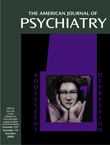Cost-Effectiveness of Services for Mentally Ill Homeless People: The Application of Research to Policy and Practice
Abstract
OBJECTIVE: About one-quarter of homeless Americans have serious mental illnesses. This review synthesizes research findings on the cost-effectiveness of services for this population and their relevance for policy and practice. METHOD: Service interventions for seriously mentally ill homeless people were grouped into three overlapping categories: 1) outreach, 2) case management, and 3) housing placement and transition to mainstream services. Data were reviewed both from experimental studies with high internal validity and from observational studies, which better reflect typical community practice. RESULTS: In most studies, specialized interventions are associated with significantly improved outcomes, most consistently in the housing domain, but also in mental health status and quality of life. These programs are also associated with increased use of many types of health service and housing assistance, resulting in increased costs in most cases. The value of these programs to the public thus depends on whether their greater effectiveness is deemed to be worth their additional cost. CONCLUSIONS: Innovative programs for seriously mentally ill homeless people are effective and are also likely to increase costs in many cases. Their value ultimately depends on the moral and political value society places on caring for its least-well-off members.



